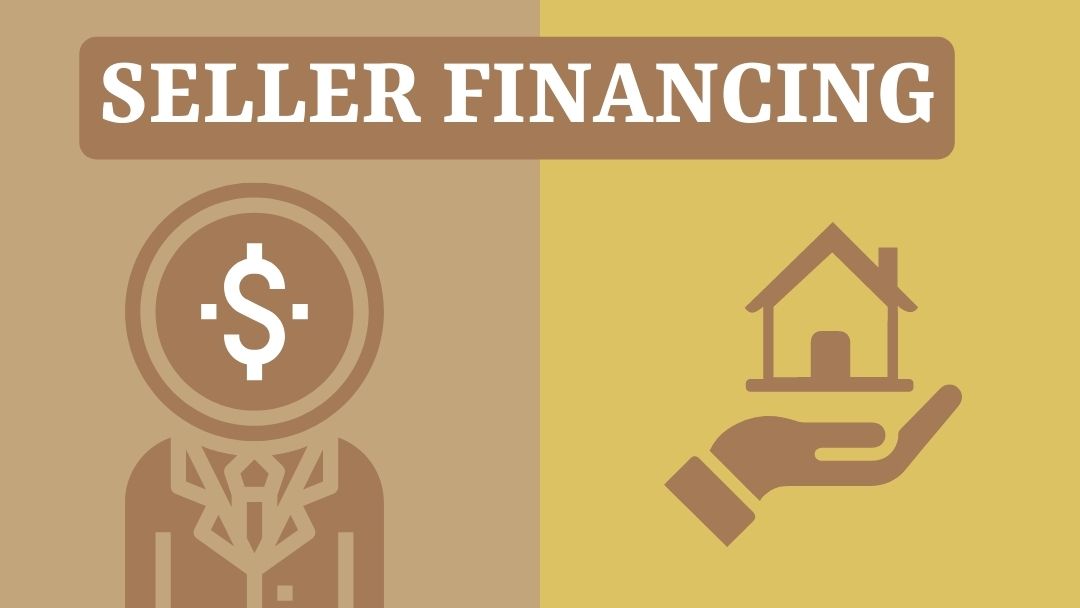When it comes to purchasing a home, traditional financing options like mortgages from banks or credit unions often come to mind. However, there’s another less-known yet equally viable method of financing a real estate transaction: seller financing, also known as the seller carry back loan. In this article, I delve into what seller financing is, how it works, what buyers should consider when using seller financing, and the risks owners should contemplate when financing the purchase of a home they are selling.
What is a Seller Carry Back Loan?
A seller carry back loan is a type of real estate financing arrangement where the property seller extends credit to the buyer to cover part or the entire purchase price of the property. Instead of relying on a traditional lender, the buyer makes payments directly to the seller over an agreed-upon period. This arrangement provides an alternative financing option, especially for buyers who may face challenges in securing conventional loans or for sellers seeking to attract more potential buyers.
How Does a Seller Carry Back Loan Work?
In a seller carry back loan, the buyer and seller negotiate the terms of the financing agreement, including the loan amount, interest rate, and repayment schedule. The terms are outlined in a promissory note, which serves as the contract between the two parties. It’s essential for both parties to involve real estate attorneys or professionals experienced in seller financing to ensure a legally binding and fair agreement.
Once the agreement is in place, the buyer will make regular payments to the seller over the agreed-upon period, often with monthly installments. The property itself acts as collateral for the loan, meaning if the buyer defaults, the seller may be able to reclaim ownership of the property.
Considerations for Buyers Using Seller Financing:
- Terms and Interest Rates: Negotiate favorable terms, including the loan amount, interest rate, and duration. It’s crucial to strike a balance between manageable payments and a reasonable repayment period. Seller’s who are financing a property sale will likely request a shorter repayment period than you could get from a traditional mortgage lender.
- Property Appraisal and Inspection: Conduct thorough due diligence on the property’s value and condition to ensure it aligns with the agreed-upon price. It is always advisable to get home and pest inspections completed before signing the financing agreement. This helps buyers understand the possible costs of addressing any needed repairs.
- Default Consequences: Understand the potential consequences of defaulting on the loan, as it may result in losing both the property and any payments made.
- Legal Assistance: Engage legal experts to review and finalize the financing agreement, protecting your interests throughout the process. This is where a qualified California real estate attorney comes into play. Contact me for referrals.
Considerations for Sellers Providing Seller Financing:
- Buyer’s Creditworthiness: Evaluate the buyer’s creditworthiness to gauge their ability to make timely payments. It’s not unreasonable to ask that the buyer provide you with a current credit report before signing a financing agreement.
- Loan Structuring: Carefully structure the terms and conditions of the loan to safeguard your investment and mitigate potential risks.
- Interest Rates: Set a fair interest rate that reflects the current market conditions and compensates you for the risk involved. Many seller financed loans are made at interest rates slightly higher than the prevailing rates offered by mortgage providers.
- Down Payment: Require a significant down payment to reduce the risk and show the buyer’s commitment.
- Alternative Exit Strategy: Be prepared with a backup plan if the buyer defaults or faces financial difficulties, such as having the option to foreclose and resell the property.
- Property Value: Conduct a property appraisal to determine its current market value and ensure it aligns with the agreed-upon price.
- Legal Assistance: Seek legal counsel to draft a comprehensive and enforceable financing agreement that protects your interests and complies with local laws. Again, reach out to me if you need a referral to a qualified California real estate attorney.
Risks of Seller Financing for Sellers:
It’s important for sellers to understand the possible downsides of providing financing to buyers of your property. Here are some common risks to consider:
- Default Risk: If the buyer defaults, the seller may face a lengthy and costly legal process to regain possession of the property.
- Interest Rate Risk: Fluctuations in interest rates can impact the profitability of the seller carry back loan. Consider requiring a variable interest rate to protect yourself against this risk.
- Market Changes: Changes in the real estate market can affect the property’s value and the buyer’s ability to make payments.
- Long-Term Commitment: Sellers should be prepared for a long-term financial commitment until the loan is fully repaid. Carefully consider the term of the loan before agreeing to finance the purchase.
- Uncertain Future: Future circumstances, such as personal financial needs or emergencies, may necessitate the need for immediate cash, which seller financing may not provide.
In conclusion, seller carry back loans can be a beneficial option for both buyers and sellers in certain real estate transactions. Buyers may find it easier to qualify for financing, while sellers can attract a broader pool of potential buyers. However, careful consideration of the terms and potential risks is crucial for both parties to ensure a successful and mutually beneficial seller financing arrangement. Seeking the advice of legal and real estate professionals can provide valuable insights and protection throughout the process, making seller financing a viable and secure option in the world of real estate.




